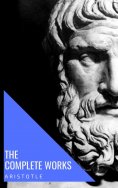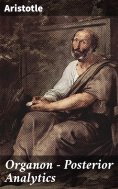Nicomachean Ethics
About the eBook
Aristotle's 'Nicomachean Ethics' is a cornerstone of Western philosophy, exploring the concept of ethics, moral philosophy, and virtues. Written in a concise and logical manner, this book examines the nature of happiness, the role of virtues in achieving eudaimonia (flourishing life), and the importance of moderation in all aspects of life. Aristotle's literary style is clear and structured, making his arguments easy to follow and understand. The work is set within the context of ancient Greek philosophy, influencing generations of thinkers to come. Aristotle's insights on ethics remain relevant and thought-provoking to this day. As a renowned philosopher in ancient Greece, Aristotle's vast knowledge and deep understanding of human nature and ethics led him to write 'Nicomachean Ethics'. Drawing from his teachings at the Lyceum, Aristotle delves into the complexities of human morality and the pursuit of a virtuous life. His practical approach to ethics provides a foundation for ethical thinking and decision-making. I highly recommend 'Nicomachean Ethics' to anyone interested in delving into the philosophical exploration of ethics and morality. It is a timeless classic that offers invaluable insights into the nature of human behavior and the pursuit of a good life.
About the Author
Aristotle (384–322 BCE) stands as a towering figure in the annals of Western philosophy, science, and ethics. Born in Stagira, a small town in classical Greece, he was a student of Plato and went on to tutor Alexander the Great. Aristotelian philosophy amalgamates empirical observation with meticulous reasoning, establishing the groundwork for various disciplines. 'Nicomachean Ethics,' one of his seminal texts, proposes an inquiry into the nature of happiness and virtue. It delves into moral philosophy by exploring the concept of eudaimonia, often translated as human flourishing or well-being, positing that virtue must be a habituated disposition rather than an ephemeral state. Aristotle's ethical framework is virtue-centered, advocating for the cultivation of moral virtues such as courage and temperance, articulated as a means toward achieving the ultimate end for which human life is aimed. This work, like many of his writings, displays Aristotle's 'golden mean'—the desirable middle ground between extremes of excess and deficiency in character and action. Aristotle's intellectual legacy spread through the Lyceum, his own Athenian school, influencing myriad fields from logic to biology. His writings have shaped Western thought throughout history, and 'Nicomachean Ethics' itself has informed countless philosophical treatises on the nature of good life and the foundations of ethical thought.
Product Details
Publisher: DigiCat
Genre: Sprache - Englisch
Language: English
Size: 180 Pages
Filesize: 472.1 KB
ISBN: 8596547753667
Published: Dec. 15, 2023



























